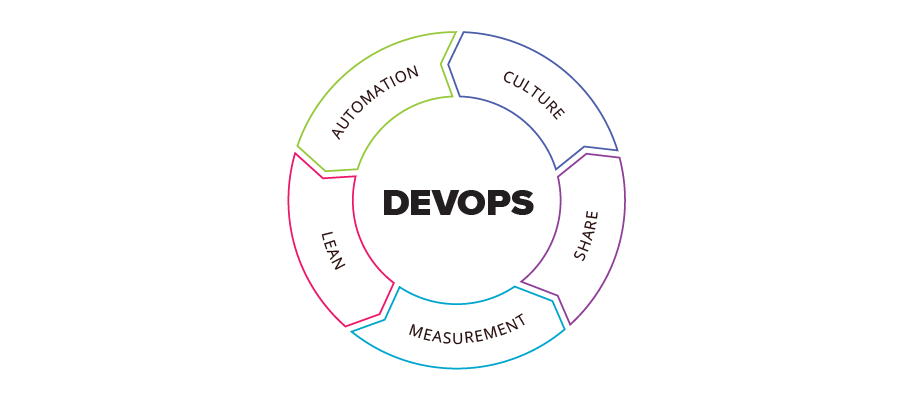The multifaceted nature of DevOps can make it a difficult model to evaluate using a single parameter. DevOps requires a set of criteria that address collaboration, process, operations, and mindset to be truly comprehensive in measuring performance and business impact.
Of the many proven frameworks that help businesses improve DevOps, the CALMS model remains popular. CALMS, which stands for culture, automation, lean, measurement, and sharing, is useful when examining a business’s DevOps implementation strategy. The CALMS framework can be applied across the business in any department, service, or vertical within DevOps, including IT, QA, R&D, or development teams.

We’ll briefly examine each facet of the CALMS model:
Culture
One of the most important yet undervalued components of DevOps is the mental and attitude shift it demands. Teaching, learning, cooperation, and a relentless drive to improve are imperative to a successful DevOps structure. It is key to address how your teams plan to collaborate across the business for better transparency and alignment, and their readiness for this type of change.
Automation
A key benefit of DevOps is speed. Automating as many processes and operations as possible ensures improved efficiency and reduced costs. Netflix is a well-known case study in DevOps automation, running frequent releases that depend on high automation and software reliability. Consider what repetitive tasks can be automated within your business.
Lean
Using lean processes and practices creates more value with less product, reducing waste and increasing value delivery. Take a look at components that can be eliminated or simplified. The good way to start—break down those areas where the greatest time is spent and identify bottlenecks.
Measurement
Establish metrics with the intention of improving the overall value stream, on an ongoing basis. While setting metrics prior to deployment is essential to measuring DevOps success, analyze operations at regular intervals to continuously optimize DevOps implementation.
Share
DevOps success is highly dependent on collaboration and agreement amongst stakeholders and team members. Align ideas within DevOps teams and across the business to ensure all parties are working together and communicating.
How will your business create a DevOps structure of success? Discover more about measuring DevOps progress and succe ss in our latest whitepaper, “DevOps: Calibrating for Value.”

